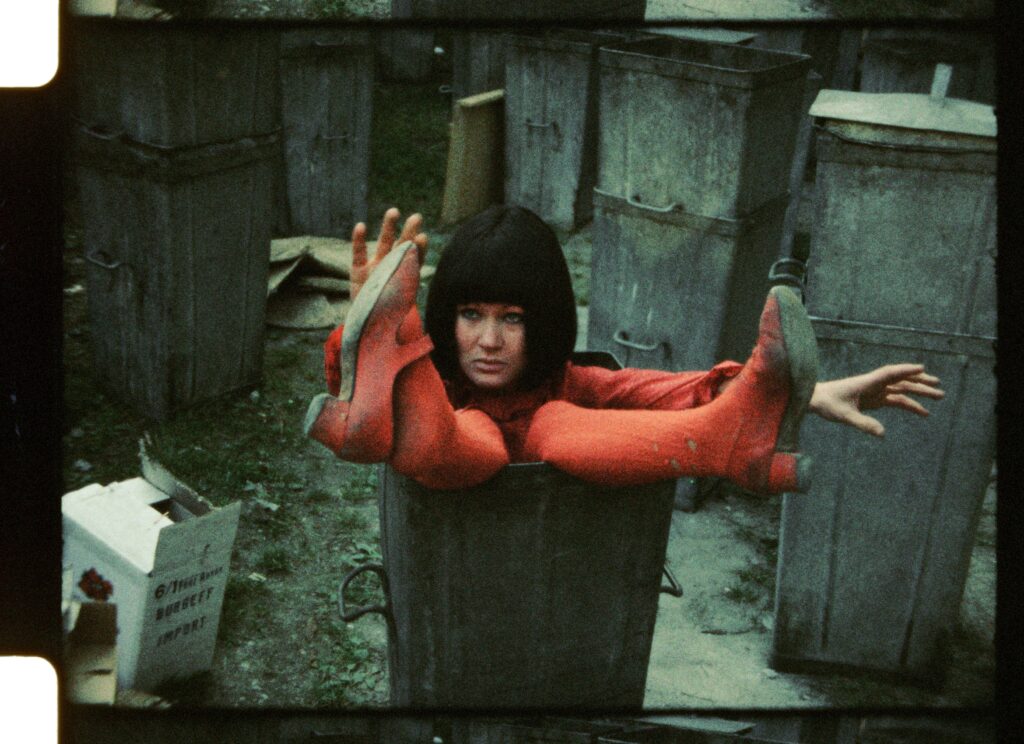BFMAF presents the first UK screening in 40 years of this innovative New German Cinema highlight. The Dumpster Kid (Kristine de Loup), born from a trash can, finds her way through the world, discovering hilarity, ecstasy, cruelty, capitalism and patriarchy along the way. Always wearing a red dress, red tights and Louise Brooks-style black bob, The Dumpster Kid steals, has sex, joins a sideshow and meets Al Capone and d’Artagnan. She is always in danger, yet immortal.
This radical film was never meant to be shown in a cinema; instead, Reitz and Stöckl showed it in pubs. The audience members were encouraged to imbibe heartily and create their own sequence of the film’s 22 episodes. This special ‘pub cinema’ screening will be recreated for this event, an exceedingly rare cinematic treat that you won’t soon forget.
Supported by Goethe-Institut, London



